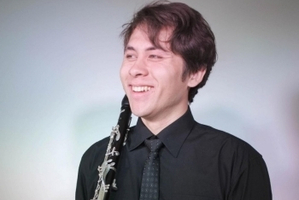Review: ‘Awesome’ orchestra deserved of donation
By Paul Serotsky

Review: Auckland Youth Orchestra, Capitaine Bougainville Theatre, Whangarei – April 2.
There’s nothing new about Auckland Youth Orchestra’s free concert/voluntary donations scheme. A few years ago, sponsorship enabled them to introduce it at their Auckland concerts. Encouraged by resounding success, they’re now – without financial back-up – extending it to all venues. It’s a bold move – a risk worth taking, because the potential benefits are immense. It demolishes financial barriers, making live symphonic music available to everyone. A well-filled, appreciative house benefits the players (AYO, remember, is a training orchestra), spurring them to even greater efforts – and magnifying listeners’ pleasure. The imponderable is “voluntary donations”. It’s hoped that those who feel able to will donate what they can reasonably afford. Given a multitude of bums on seats, there’ll be a good chance that AYO won’t lose money, and therefore could afford to come again, maybe more often.
Well, they got a well-filled house. All the early-birds were royally entertained by a taste of tomorrow’s musicians, Sistema Whangarei. Today’s musicians, directed by the perceptive Antun Poljanich, opened with Smetana’s Vltava, a piece that responds badly to routine performance. AYO’s was anything but. They uncovered a teasing lilt in the famous tune, and strutted cockily through the country dance. The scenes were both creatively characterised and cunningly crafted into an ebbing, flowing whole.
Spohr’s First Clarinet Concerto hovers between classical formal elegance and romantic emotional expression. Fleet-fingered former AYO clarinettist, Kenny Keppel, proved himself master of this hybrid quality, respectful of the formal yet keenly responsive to momentary whims. His assured blend of discipline and spontaneity, allied to almost balletic movements, appositely alluded to Jazzman. Backed by AYO’s warmth and piquancy, he brought affecting tenderness to the brief adagio, and dispatched the spirited finale with bags of zest, wit and sheer cheekiness.
Sibelius’s Symphony No2 is the work in which his inimitable mature style and sound-world didn’t so much emerge as explode into being. This superb performance brought my first-ever questioning of a Poljanich tempo: the finale’s big tune crackled with excitement, but somehow Antun lost the moderato from Sibelius’s allegro moderato (I later sampled four recordings, all palpably slower), and with it, to my mind, the essential ingredient of grandeur. In all other respects it was uniformly terrific. Throughout you sensed a vast, unfolding drama, its details etched sharply against the narrative thrust. Especially impressive were the several long crescendi, which Antun built with throat-grabbing sureness. And the coda – Ah! There Antun lost not one drop of towering grandeur. If you want to know what “awesome” really means, this was it.
